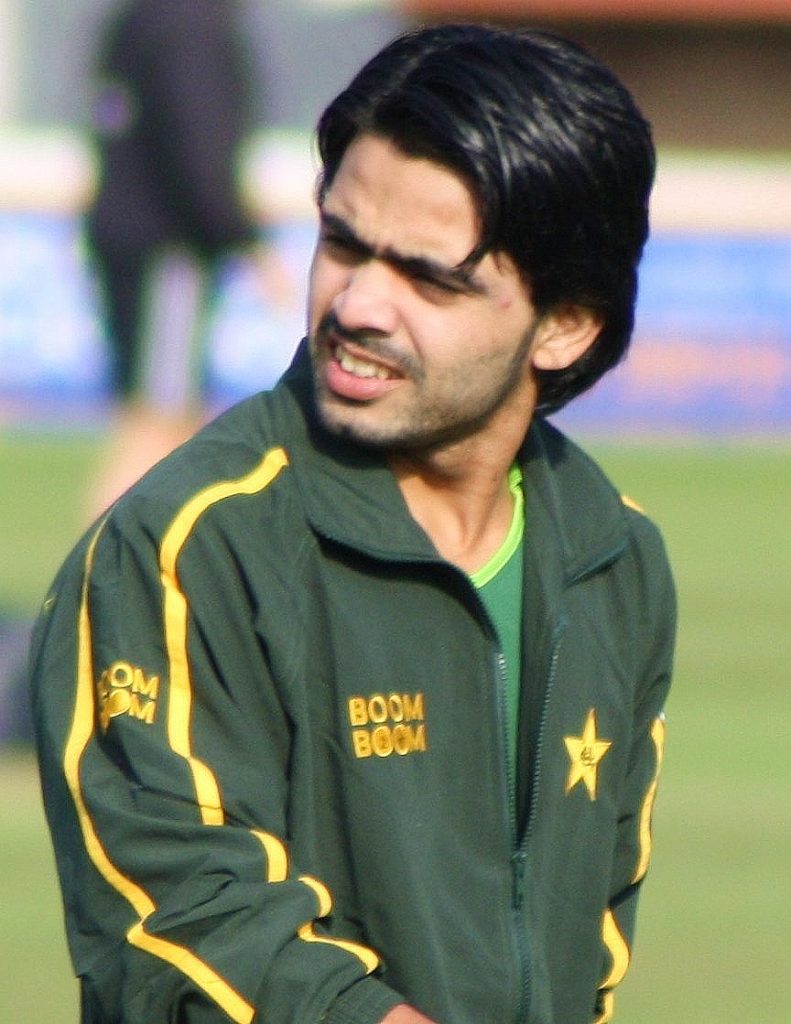Pakistan’s cricket as a whole is the visual representation of a sine curve. It takes you up to cloud nine and then suddenly dumps you into a dark abyss. In simple terms, it is capable of producing the highest and the lowest quality of cricket in a matter of moments. The administration or the cricket board is similar to how the team functions; it is uncanny in its approach and makes decisions that leave the cricket fans in the country befuddled. The domestic cricket formula is straightforward all over the world, based on a simple rule that the best performers in the local circuit make up the team. Still, in Pakistan, it is up to the prejudice or intuition of the chief selector, which is damaging cricket in the country.
READ: Will Haris Rauf Prove His Worth?
To verify the claim of the so-called thought process one can watch Inzamam Ul Haq in one of his Youtube videos discussing his time as a chief selector and how he preferred using his ‘cricketing sense’ over statistics when he mulled over the options to choose the best squad for the national team and also goes on to mention Imran Khan as how he possessed this intuition to select players. This whole thought process has been and will remain detrimental to Pakistan Cricket as it ignores the performances in domestic cricket and undermines its potential to provide future players for Pakistan.
The truth is, optimistic but yet realist fans had an idea of what was coming, and they did not want to be a firsthand witness of such embarrassment. It started with the inclusion of Musa Khan and Naseem Shah as the main strike bowlers with pretty much no first-class experience. It was a recipe for disaster and partly wishful thinking on the part of the Chief Selector Misbah Ul Haq, hoping that they would blow away the Australians. Bringing an inexperienced bowling attack to the shores of Australia was not a rational decision by Misbah Ul Haq, knowing that even the best of Pakistani fast bowlers had struggled in Australia, even Wasim and Waqar could not produce exceptional displays in the land down under.
Pakistan certainly has talent in the domestic circuit, the two names that instantly come to mind are Sadaf Hussain and Tabish Khan. They both have been performing well at the domestic level for a while but still denied the opportunity to represent Pakistan Cricket at the highest level. When Wahab Riaz and Mohammad Amir retired from test cricket, and Hassan Ali being unavailable due to injury, there was a vacuum left in the pace attack. A wise selector would have pulled out the statistics and picked two bowlers with the best record at the domestic level and who better than Sadaf Hussain and Tabish Khan who, if combined, have a total of 900 plus wickets.
A popular belief around Pakistan is that to make it into the national team, one needs a strong reference or help of nepotism, and that is a fair perception as the consistent performers at the national level keep getting overlooked. This impression is not wrong as there are many examples of nepotism in Pakistan cricket. The most recent example is the selection of Azam Khan for PSL 2020 in the emerging player category for Quetta Gladiators, for he is the son of Moin Khan, who is the coach of the Quetta team. Azam Khan averages only 13 in his eight List A games and nowhere near the quality to be considered for any side. It is a blatant conflict of interest and misuse of authority, but no one seems to bat an eye at the PCB’s administration. Back in the day in the early 2000s, there was an example of Junaid Zia, who ended up playing 4 Odis for Pakistan because he was the son of the Lt. Gen Tauqir Zia who was the Chairman of PCB then. He got dropped after the public furor on his inclusion in the team over more deserving players with better stats. Another more recent example is of Imam ul Haq who was not the best at the domestic level but still got the chance to play for Pakistan allegedly because of his uncle Inzamam ul Haq who was then the chief selector of the team. Fortunately, Imam has performed at the highest level in One Day cricket and has somewhat justified his selection but at the cost of players who were more deserving of an opportunity.
The selection of Fawad Alam for the test series against Srilanka is a manifestation of Misbah ul Haq’s capitulation under public pressure and a saving face move by PCB. It took them ten years to finally include someone in the team who has been scoring runs heavily and deserved a spot in the team at least five years ago. Still, it had to be an embarrassing performance against Australia for them to make deserving Fawad Alam a part of the team. Unfortunately, he did not get the opportunity to play in the series which again was a surprise and unfair considering Haris Sohail had miserably failed in the Test series against Australia and also in the 1st Test against Srilanka at home. Fawad’s inclusion in the test team seemed more to be a political one by Misbah just to save his skin from the critics. A prime example of prejudice and model of a reactive policy than a proactive one. It would be interesting to see if Fawad Alam gets the chance to play against Bangladesh in the upcoming two-match Test series at home.

In conclusion, the administrators at the PCB need to start relying more on factual information of facts and figures than the imaginary sense and preconception of an ex-cricketer or a coach. The domestic cricket circuit is in place for a reason, and they should show their faith in the system and should trust it to produce future stars for Pakistan cricket. If the top performers in domestic cricket keep getting ignored over nepotism and intuition of the coach or selector then it defeats the purpose of having a domestic circuit at all.

